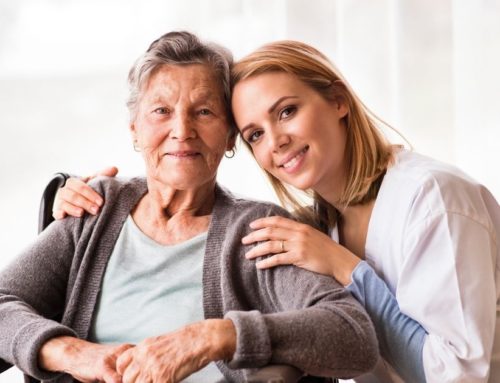For reasons like denial, confusion and frustration, many elderly Americans don’t take their medications as prescribed. Seniors with dementia or Alzheimer’s are even more likely to skip doses or forget to take their medicine altogether.
If your aging parents aren’t being medication-compliant they may be placing themselves at risk for adverse drug events that could threaten their independence. Motivating aging-in-place seniors to take their medications isn’t easy. Using these tips should help the process go more smoothly.
Adverse Drug Events in the Elderly
The Institute of Medicine defines an adverse drug event (ADE) as “an injury resulting from medical intervention related to a drug”- including those caused by non-compliance. The CDC reports that elderly Americans visit hospital emergency departments over 450,000 times every year due to an ADE.
As a concerned family member, when your elderly parents skip doses or don’t take their medications at all it can worsen chronic health conditions and cause serious side effects.
Why Some Seniors Have Medication Lapses
Advancing age can cause medication lapses, as studies have shown that seniors aged 80+ are 1.5 to 3X more likely to require medication assistance than those between 65 and 69. Elderly men are also more likely to need medication reminders than are women.
Other reasons why seniors don’t take their medications as prescribed include:
- Memory lapses
- Trouble performing activities of daily living (ADLs)
- Denial
- Confusion
- Mismanaging multiple prescriptions
Medication Motivation Tips for Informal Caregivers
Making sure that your parents take the right medications at the right dose at the right time is possible by taking these steps:
Share your concerns
Based on what you’ve observed, sit down and have an honest conversation with mom and dad. Share your concerns respectfully, offer your support and ask questions to determine why they aren’t being compliant. For example, dad may not be taking his diabetes pills because of the way they make him feel.
If your parents are still being difficult, enlist the support of a trusted friend who takes the same medications they do or ask their doctor to speak with them about the importance of medication compliance.
Scale back certain medications
Adding supplements or over-the-counter medications to their prescription mix can cause even more confusion or a dangerous drug interaction. Once you’ve learned what’s causing the issue- like taking way too many medications throughout the day- schedule a time to speak with their doctor or pharmacist.
Use that opportunity to find out if some of the medications can be reduced, eliminated or replaced with a drug that treats multiple symptoms or conditions. You may also want to investigate holistic and complementary treatment alternatives.
Rule out other medical conditions
If your aging parent just recently started forgetting to take their medicine or putting up a fuss when it’s time for a dose, he or she may have an undiagnosed medical condition that’s causing the problem.
For example, some forms of dementia can diminish cognitive function or cause mood swings that make medication time more challenging for informal caregivers. If that’s a concern take them to the doctor for an evaluation.
Associate medications with meals
Since many medications must be taken with food, start associating medication time with mealtime. Not only will it help your loved ones remember to take their meds, doing so should be less stressful for all of you.
Get them a pill organizer
Taking multiple medications can be confusing for many seniors. Pill organizers and medication reminders are a great way to keep your parents on track, and some even come with alarms. You can also download a medication-reminder app on their Smartphones.
Professional Medication Monitoring for At-Home Seniors
Motivating an aging loved one to take their medicine isn’t easy when you’re busy or live far away. When you need assistance contact Help at Home. While serving as an extended family in the home our thoroughly screened, experienced health professionals will help keep your senior medication-compliant so they can stay right where they want to be. All our compassionate caregivers use a unique, highly personalized approach that’s designed to ensure client satisfaction and restore peace of mind.
We take great measures to match your loved one with a qualified caregiver that’s compatible with their unique personality and specific needs. In addition to medication monitoring, our home care services includes transitional care, personal care, companion care, respite care, end-of-life care, Alzheimer’s and dementia care. To learn more about Help at Home now, or to contact us about a senior in Virginia, Maryland or the Washington, DC, metro area today, please visit: www.helpathomecare.com!





